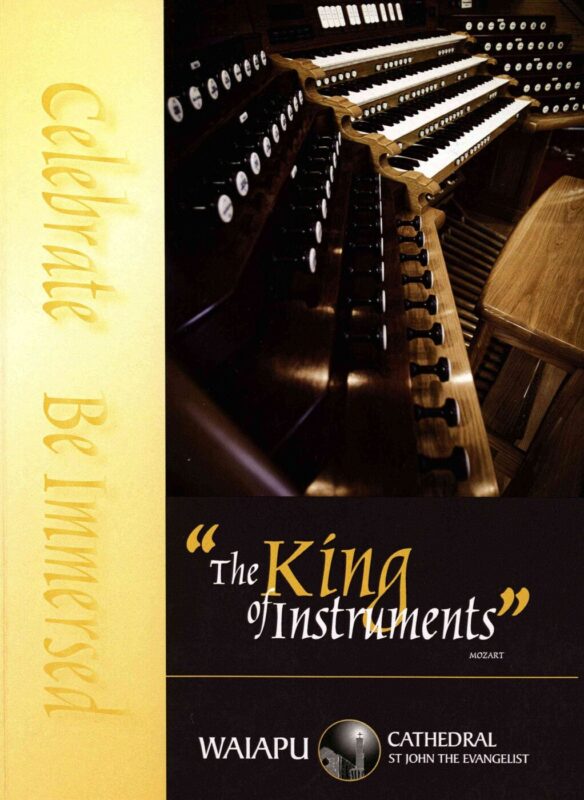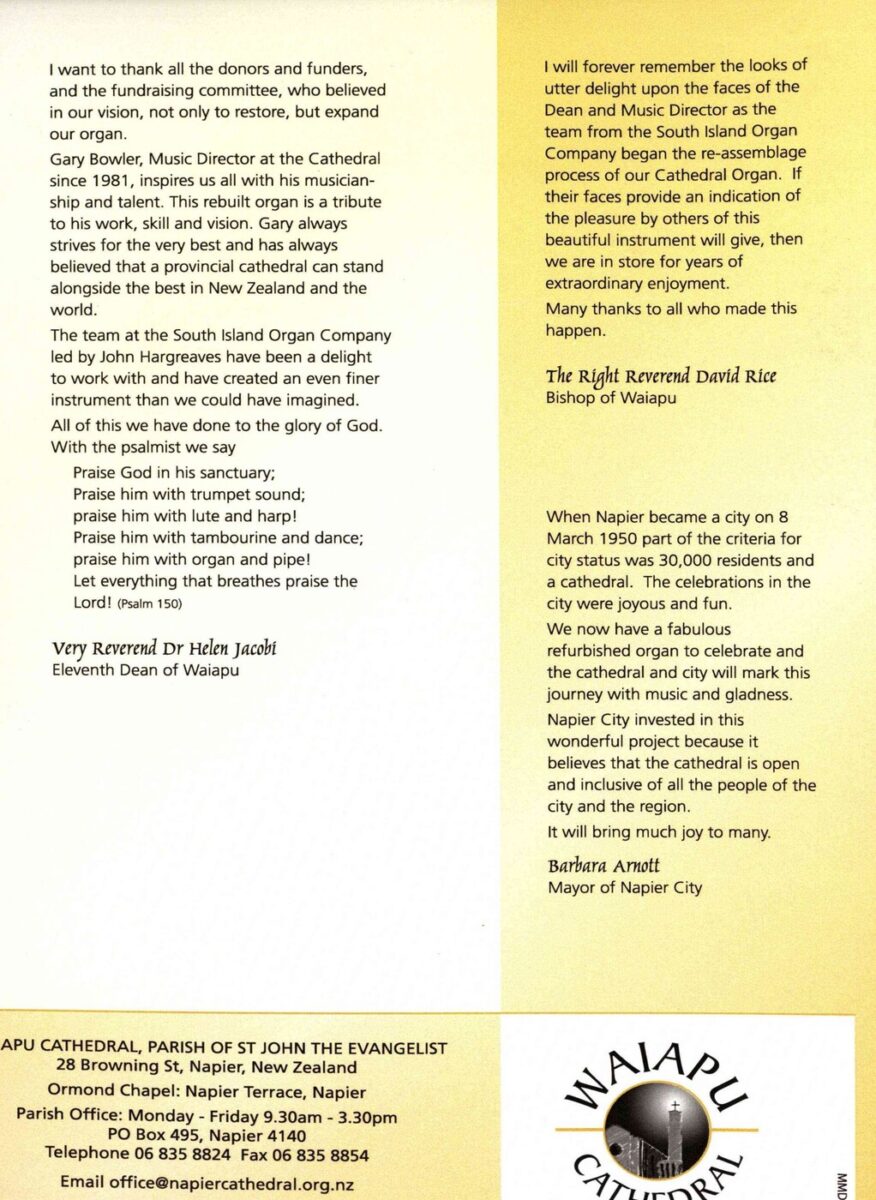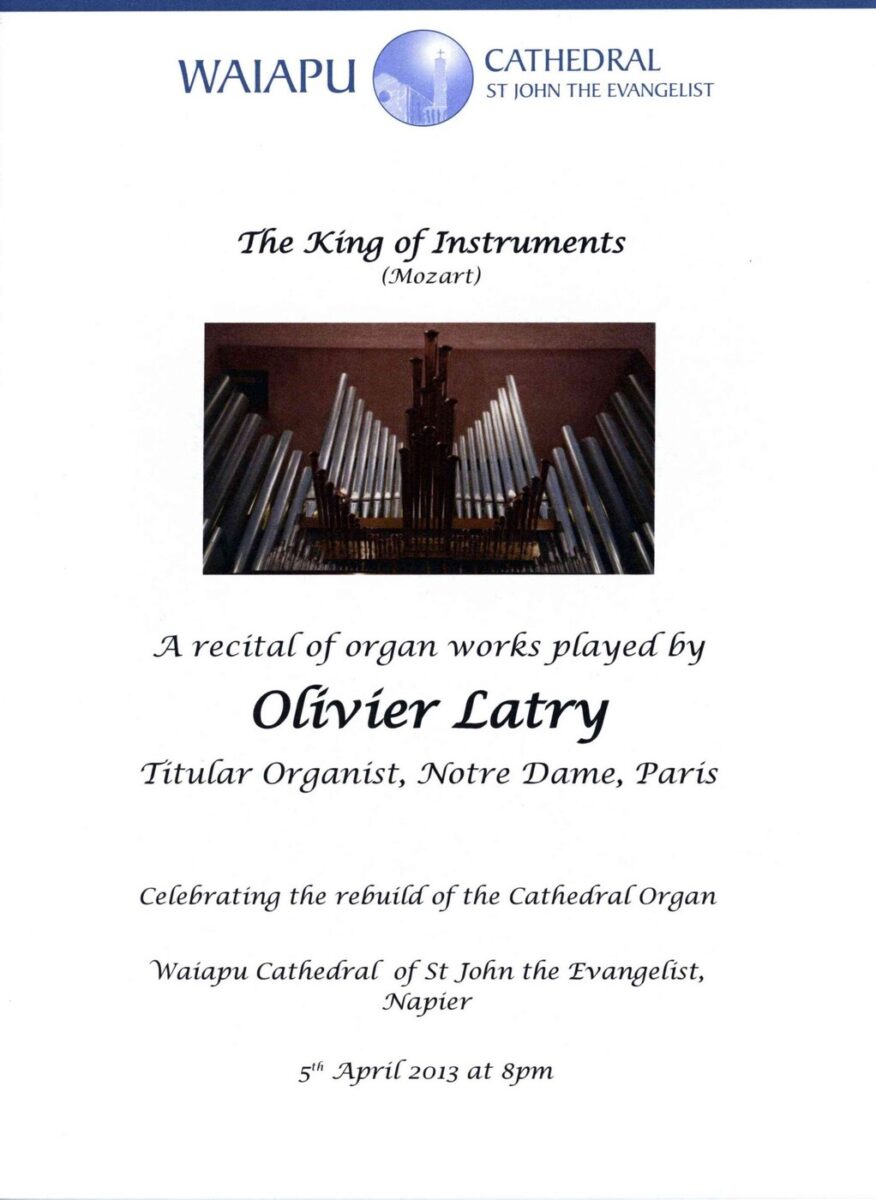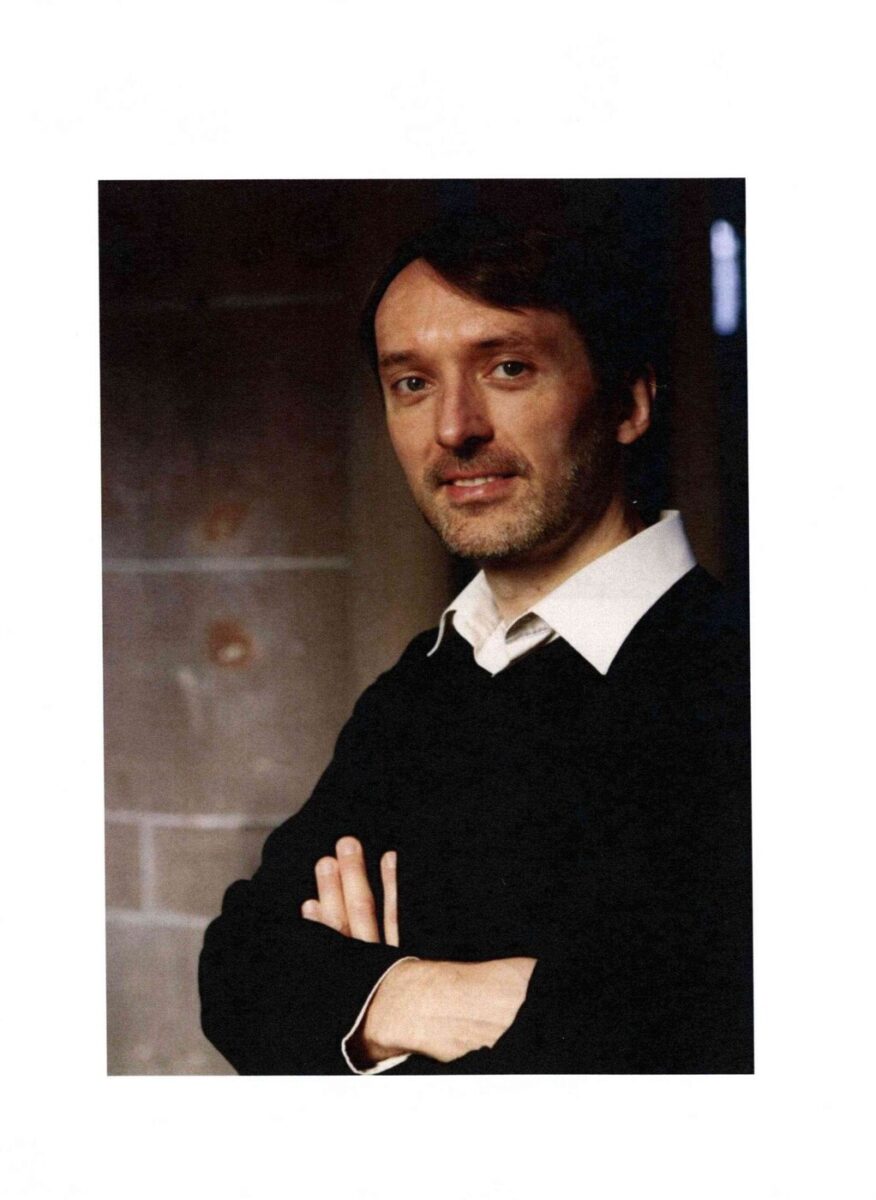I want to thank all the donors and funders, and the fundraising committee, who believed in our vision, not only to restore, but expand our organ.
Gary Bowler, Music Director at the Cathedral since 1981, inspires us all with his musicianship and talent. This rebuilt organ is a tribute to his work, skill and vision. Gary always believed that a provincial cathedral can stand alongside the best in New Zealand and the world.
The team at the South Island Organ Company led by John Hargreaves have been a delight to work with and have created an even finer instrument than we could have imagined.
All of this we have done to the glory of God.
With the psalmist we say
Praise God in his sanctuary;
Praise him with trumpet sound;
praise him with lute and harp!
Praise him with tambourine and dance;
praise him with organ and pipe!
Let everyone that breathes praise the Lord! (Psalm 150)
Very Reverend Dr Helen Jacobi
Eleventh Dean of Waiapu
I will forever remember the looks of utter delight upon the faces of the Dean and Music Director as the team from the South Island Organ Company began the re-assemblage process of our Cathedral Organ. If their faces provide an indication of the pleasure by others of this beautiful instrument will give, then we are in store for years of extraordinary enjoyment.
Many thanks to all who made this happen.
The Right Reverend David Rice
Bishop of Waiapu
When Napier became a city on 8 March 1950 part of the criteria for city status was 30,000 residents and a cathedral. The celebrations in the city were joyous and fun.
We now have a fabulous refurbished organ to celebrate and the cathedral and city will mark this journey with music and gladness.
Napier City invested in this wonderful project because it believes that the cathedral is open and inclusive of all the people of the city and the region.
It will bring much joy to many.
Barbara Arnott
Mayor of Napier
APU [WAIAPU] CATHEDRAL, PARISH OF ST JOHN THE EVANGELIST
28 Browning St, Napier, New Zealand.
Ormond Chapel: Napier Terrace, Napier.
Parish Office: Monday-Friday 9.30am – 3.30pm
PO Box 495, Napier 4140
Telephone 06 835 8824 Fax 835 8854
Email [email protected]
WAIAPU CATHEDRAL





















Do you know something about this record?
Please note we cannot verify the accuracy of any information posted by the community.